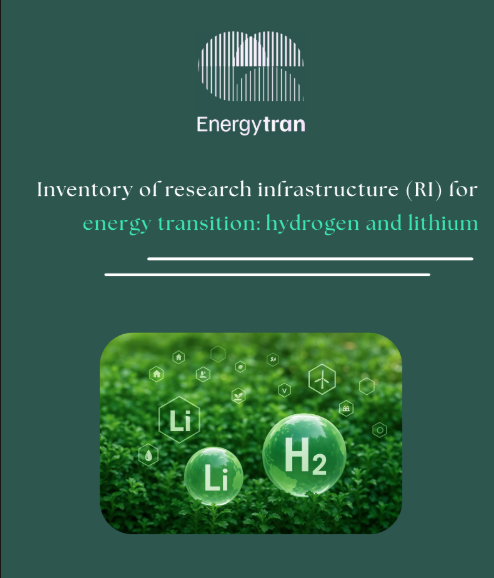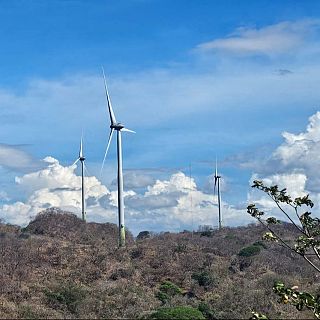Dr. Noemí Sogari, a teaching and research professor at the Faculty of Exact Sciences, Natural Sciences and Land Surveying (FaCENA) of the National University of the Northeast (UNNE), an institutional partner of the Energytran project, is participating in the dialogue series “Expert Women, Decision-Making Women”, organized by the Organization of Ibero-American States (OEI).

This dialogue is part of the activities carried out by the OEI’s Ibero-American Program on Education in Human Rights, Democracy and Equality, and within the framework of the “Voices of Ibero-American Women” platform, promoted since 2024 by the OEI and the Carlos III University of Madrid. The event also served as an opportunity to present the Energytran project, led by the OEI and funded by the European Union, which aims to contribute to the design of public policies for a clean, just, and sustainable digital transformation in Europe and Latin America.
Biologist Jazmín Calderón presents her work in the Energytran project, an EU-OEI initiative.

From Costa Rica, CeNAT — a program of the National Council of University Presidents (CONARE) — has played a key role in research and knowledge exchange, promoting sustainable solutions and inclusive public policies in line with the Sustainable Development Goals (SDGs).
The TECNM has developed an Energytran Inventory of EULAC research infrastructures: hydrogen and lithium.

The Energytran inventory is a mapping of scientific infrastructure in the European Union, Latin America, and the Caribbean (EULAC), focused on research groups and specialized equipment directly or indirectly linked to the lithium and hydrogen value chains for the energy transition.
The TECNM has produced a monograph on the capabilities and limitations of the research infrastructure available in the countries of Latin America and the Caribbean (LAC) and the European Union (EU) to support and strengthen the green hydrogen production and lithium supply chains.

Within the framework of the ENERGYTRAN project, and as part of Work Package 2, Deliverable D2.2 – Monograph on Research Infrastructure (RI) for Green Hydrogen and Lithium – has been developed. This monograph was edited by the research group of TecNM – Instituto Tecnológico de Aguascalientes, and compiles the contributions of specialists focused on developments, advancements, and challenges related to strengthening lithium and hydrogen supply chains in the energy transition of the European Union, Latin America, and the Caribbean (EULAC).
The National High Technology Center (CeNAT) of Costa Rica carried out a scientific mobility mission to Portugal and Spain as part of the Energytran project.

From Costa Rica, CeNAT — a program of the National Council of University Chancellors — has played a key role in research and knowledge exchange, promoting sustainable solutions and inclusive public policies in alignment with the Sustainable Development Goals (SDGs).
The Organization of Ibero-American States (OEI) will focus its scientific outreach initiative in Paraguay on climate change.

The OEI announced on Thursday that it will once again organize the largest scientific outreach event in Ibero-America, the “6th Ibero-American Night of Researchers,” on September 26 and 27 in Paraguay, with climate change as the main theme.
National Radio of Spain (RNE) and the 2025 World Environment Day: Clean Energy and Equity – Energytran Project

June 5 is World Environment Day, an opportunity to bring to the forefront the way we produce and consume energy, and the effects this model has on people and territories.
National Radio of Spain (RNE) The Energy Transition: The Role of Ibero-America

The transformation of the global energy system is not just a technological issue. On the occasion of World Environment Day, we ask what this transition means for Ibero-America and what role it can play within the global clean energy value chain.
The Auditorium of the Cultural Initiatives Center at the University of Seville (CICUS) Hosts the Opening of the Workshop ‘Strengthening Europe–Latin America Cooperation in the Energy Transition’

This activity is part of a series of working sessions aimed at promoting dialogue and international collaboration around the challenges of the energy transition, with a special focus on the Ibero-American context.
Energytran: the Most Human Face of the Energy Transition in Latin America

Fair, sustainable, and inclusive. That’s the nature of the energy transition in this scientific and academic project promoted by the OEI.



